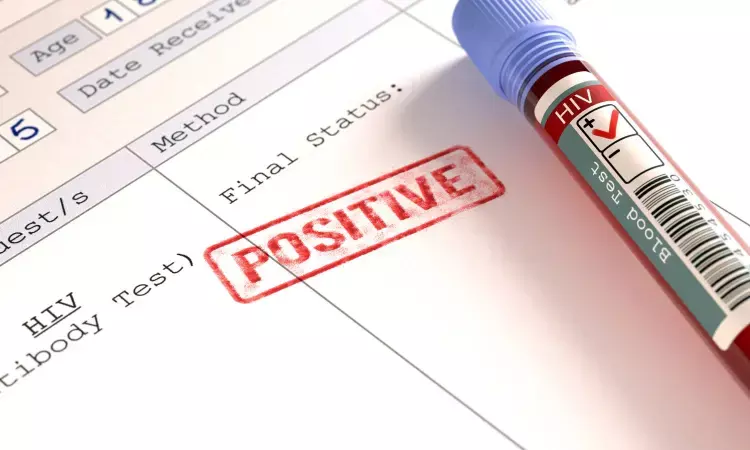- Home
- Medical news & Guidelines
- Anesthesiology
- Cardiology and CTVS
- Critical Care
- Dentistry
- Dermatology
- Diabetes and Endocrinology
- ENT
- Gastroenterology
- Medicine
- Nephrology
- Neurology
- Obstretics-Gynaecology
- Oncology
- Ophthalmology
- Orthopaedics
- Pediatrics-Neonatology
- Psychiatry
- Pulmonology
- Radiology
- Surgery
- Urology
- Laboratory Medicine
- Diet
- Nursing
- Paramedical
- Physiotherapy
- Health news
- Fact Check
- Bone Health Fact Check
- Brain Health Fact Check
- Cancer Related Fact Check
- Child Care Fact Check
- Dental and oral health fact check
- Diabetes and metabolic health fact check
- Diet and Nutrition Fact Check
- Eye and ENT Care Fact Check
- Fitness fact check
- Gut health fact check
- Heart health fact check
- Kidney health fact check
- Medical education fact check
- Men's health fact check
- Respiratory fact check
- Skin and hair care fact check
- Vaccine and Immunization fact check
- Women's health fact check
- AYUSH
- State News
- Andaman and Nicobar Islands
- Andhra Pradesh
- Arunachal Pradesh
- Assam
- Bihar
- Chandigarh
- Chattisgarh
- Dadra and Nagar Haveli
- Daman and Diu
- Delhi
- Goa
- Gujarat
- Haryana
- Himachal Pradesh
- Jammu & Kashmir
- Jharkhand
- Karnataka
- Kerala
- Ladakh
- Lakshadweep
- Madhya Pradesh
- Maharashtra
- Manipur
- Meghalaya
- Mizoram
- Nagaland
- Odisha
- Puducherry
- Punjab
- Rajasthan
- Sikkim
- Tamil Nadu
- Telangana
- Tripura
- Uttar Pradesh
- Uttrakhand
- West Bengal
- Medical Education
- Industry
Immune checkpoint inhibitors have proven safety in cancer patients with HIV

A study published in the Journal of Clinical Oncology has concluded that among people living with HIV (PWH), immune checkpoint inhibitors or ICIs demonstrated differential activity across cancer types with no excess toxicity.
In comparison to people living without HIV (PWOH), there is an exclusion of people living with HIV (PWH) and cancer from immune checkpoint inhibitor (ICI) trials. There remains a lack of real-world data on ICIs usage in PWH and cancer.
In the present study, researchers included PWH treated with anti–PD-1- or anti–PD-L1-based therapies for advanced cancers. They measured Objective response rates (ORRs) per RECIST 1.1 or other tumour-specific criteria whenever feasible.
The study results are:
- There were 390 PWH with a median age of 58, including 85% males.
- Two hundred seventy-four participants received anti–PD-1/anti–PD-L1 monotherapy.
- The most common cancers were NSCLC, hepatocellular carcinoma, and head and neck squamous cell carcinoma constituting 28%, 11% and 10 %.
- One hundred fifty-two participants constituting 70 %, had CD4+ T cell counts ≥200 cells/µL.
- 94% participants nearly 179 participants out of 190 had HIV viral load <400 copies/mL.
- Seventy-nine participants constituting 20 %, had any grade immune-related adverse events (irAEs).
- 30 participants out of 390, 7.7%, had grade ≥3 irAEs.
- ORRs were 69%, 31%, 16% and 11% for nonmelanoma skin cancer, NSCLC, HCC and HNSCC) respectively.
- Considering matched mNSCLC cohort (61 PWH v 110 PWOH), 20% PWH and 22% PWOH had grade immune-related adverse events or irAEs.
- The adjusted 42-month RMST difference was –0.06 months and 2.23 months for PFS and OS, respectively.
Concluding further, Among PWH, ICIs demonstrated differential activity across cancer types with no excess toxicity.
They said, “We reported similarities in Safety and activity of ICIs between matched cohorts of PWH and PWOH with mNSCLC.
They said there have been general concerns regarding ICIs safety in patients with cancer and HIV. The results of our study should reassure physicians that using ICIs is safe and effective even for those who are on ART.
ICIs were safe and had differential activity across types of tumour. Among PWH with non–small-cell lung cancer (NSCLC), CD4+ T-cell counts, or ART regimens did not influence treatment outcomes.
Further reading:
BDS, MDS in Periodontics and Implantology
Dr. Aditi Yadav is a BDS, MDS in Periodontics and Implantology. She has a clinical experience of 5 years as a laser dental surgeon. She also has a Diploma in clinical research and pharmacovigilance and is a Certified data scientist. She is currently working as a content developer in e-health services. Dr. Yadav has a keen interest in Medical Journalism and is actively involved in Medical Research writing.
Dr Kamal Kant Kohli-MBBS, DTCD- a chest specialist with more than 30 years of practice and a flair for writing clinical articles, Dr Kamal Kant Kohli joined Medical Dialogues as a Chief Editor of Medical News. Besides writing articles, as an editor, he proofreads and verifies all the medical content published on Medical Dialogues including those coming from journals, studies,medical conferences,guidelines etc. Email: drkohli@medicaldialogues.in. Contact no. 011-43720751


